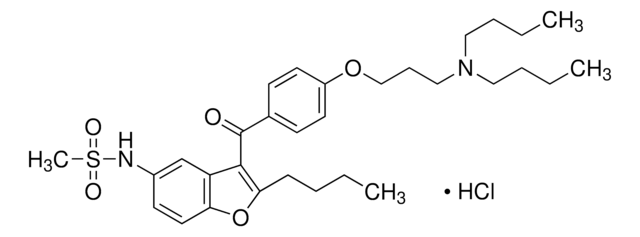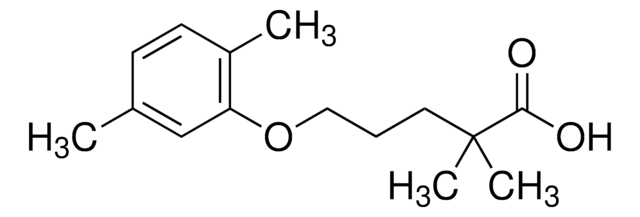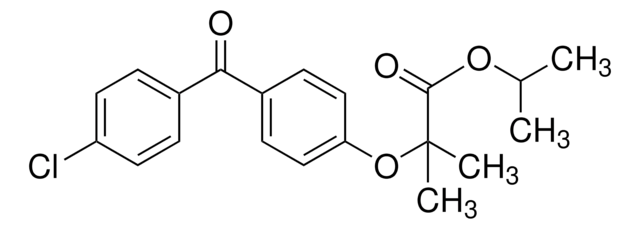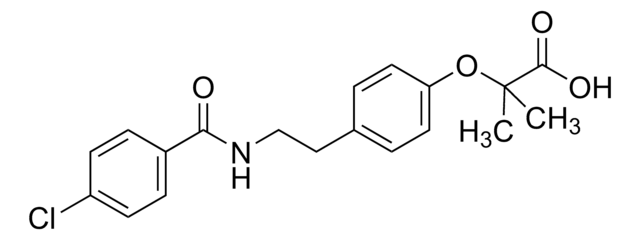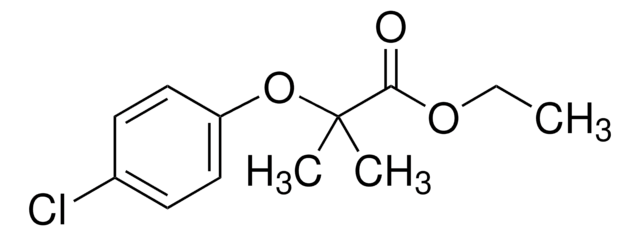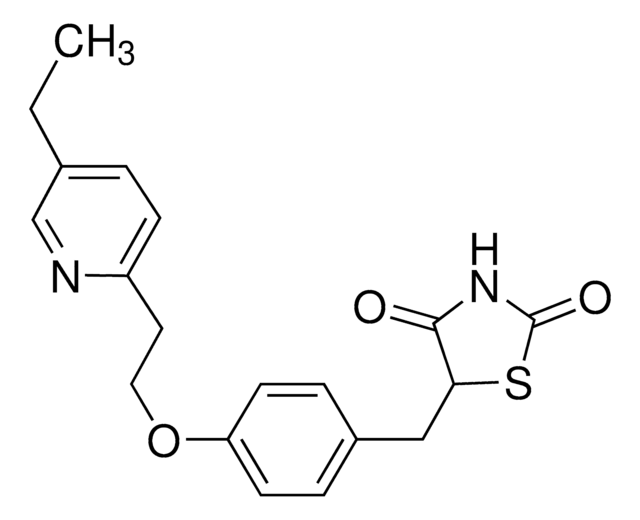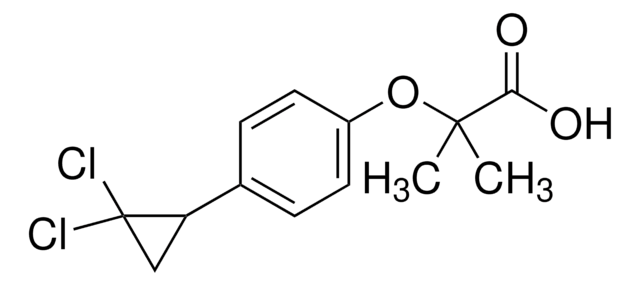F6020
Fenofibrate
≥99% (TLC), powder, lipid regulating drug
Sinónimos:
2-[4-(4-Chlorobenzoyl)phenoxy]-2-methylpropanoic acid isopropyl ester
About This Item
Productos recomendados
product name
Fenofibrate, ≥99%, powder
Quality Level
assay
≥99%
form
powder
color
off-white
originator
Abbott
storage temp.
room temp
SMILES string
CC(C)OC(=O)C(C)(C)Oc1ccc(cc1)C(=O)c2ccc(Cl)cc2
InChI
1S/C20H21ClO4/c1-13(2)24-19(23)20(3,4)25-17-11-7-15(8-12-17)18(22)14-5-9-16(21)10-6-14/h5-13H,1-4H3
InChI key
YMTINGFKWWXKFG-UHFFFAOYSA-N
Gene Information
human ... PPARA(5465)
¿Está buscando productos similares? Visita Guía de comparación de productos
Application
- to study its effect on plasma lipids, liver phenotype and gene expression
- to study its impact on endothelium-dependent vasodilatation of thoracic aorta
- to administer to NASH knock-in mice along with a high fat diet (HFD) to study its effect
Biochem/physiol Actions
Features and Benefits
signalword
Warning
hcodes
pcodes
Hazard Classifications
STOT RE 2 Oral
target_organs
Liver
Storage Class
11 - Combustible Solids
wgk_germany
WGK 1
flash_point_f
Not applicable
flash_point_c
Not applicable
ppe
dust mask type N95 (US), Eyeshields, Gloves
Certificados de análisis (COA)
Busque Certificados de análisis (COA) introduciendo el número de lote del producto. Los números de lote se encuentran en la etiqueta del producto después de las palabras «Lot» o «Batch»
¿Ya tiene este producto?
Encuentre la documentación para los productos que ha comprado recientemente en la Biblioteca de documentos.
Los clientes también vieron
Artículos
Since cholesterol is a water-insoluble molecule it must be packaged for transport within the plasma. The particles that package cholesterol, cholesteryl esters, and triglycerides for transport, are called lipoproteins.
Randomized controlled clinical studies have suggested 3-hydroxy-3-methylglutaryl coenzyme A (HMG-CoA) reductase inhibitors (statins) are effective in both primary and secondary prevention of cardiovascular disease (CVD) events.
Contenido relacionado
Discover Bioactive Small Molecules for Lipid Signaling Research
Nuestro equipo de científicos tiene experiencia en todas las áreas de investigación: Ciencias de la vida, Ciencia de los materiales, Síntesis química, Cromatografía, Analítica y muchas otras.
Póngase en contacto con el Servicio técnico